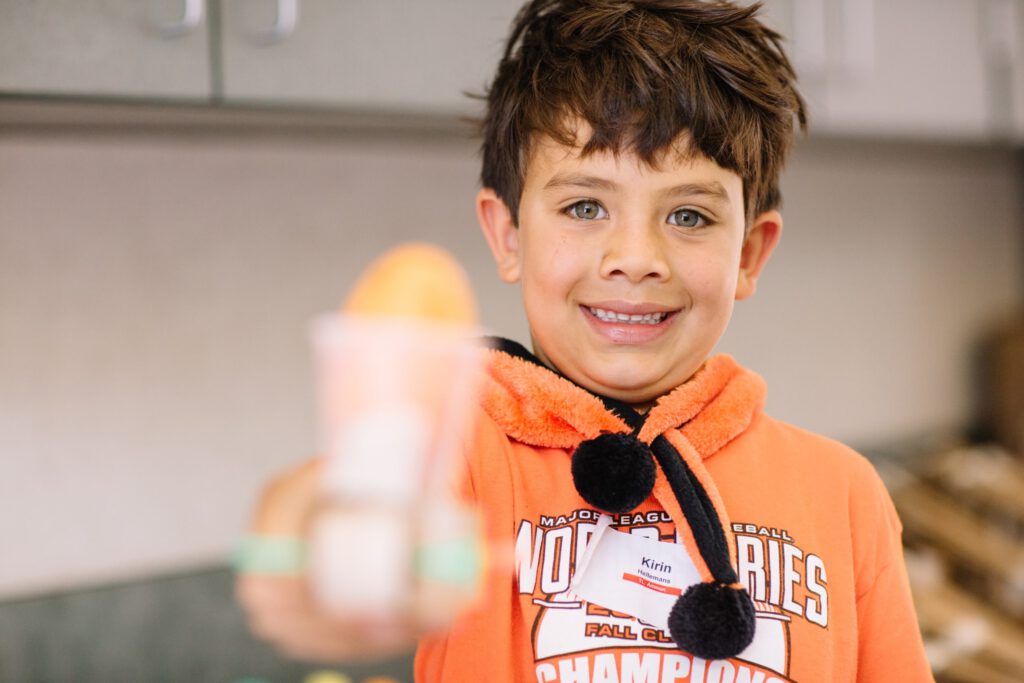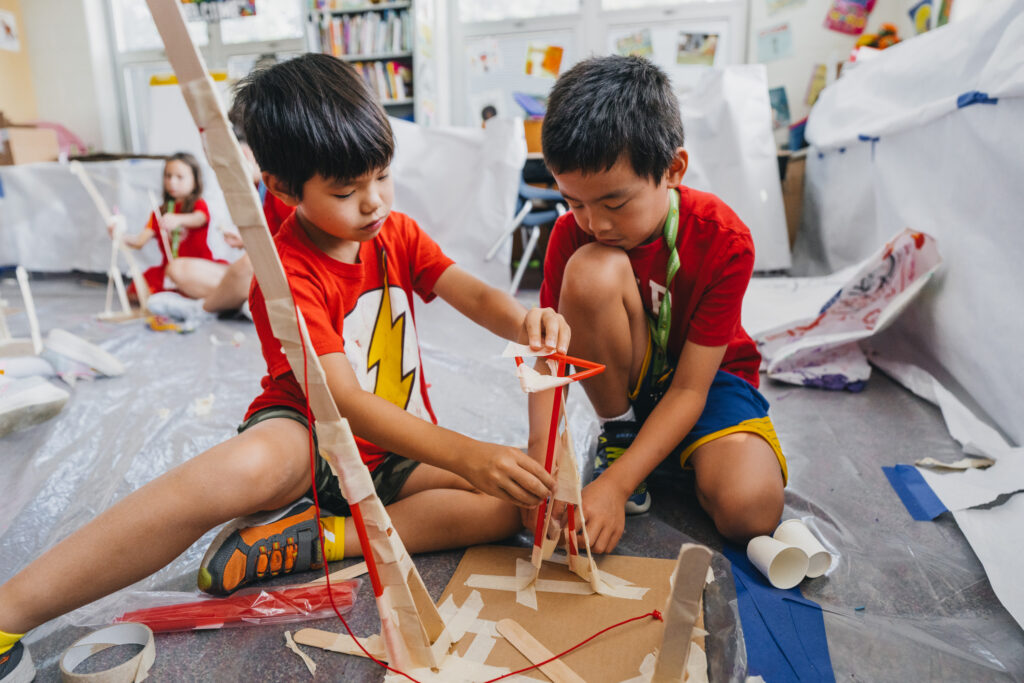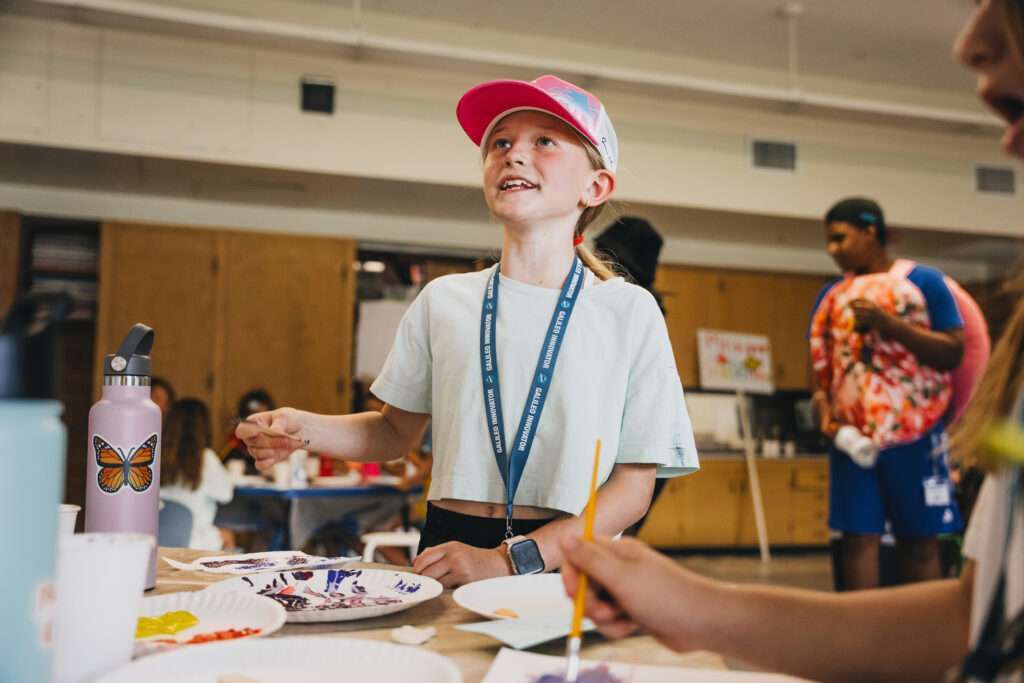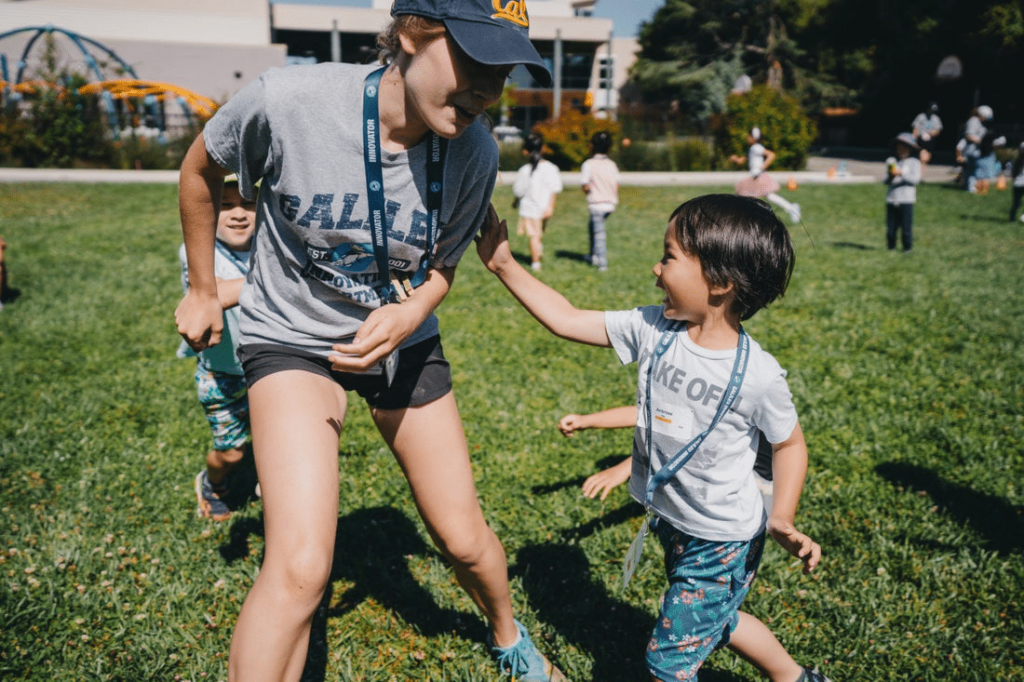When we have a personal or team goal to reach, reflection plays a key role in helping us get there.
Innovators are willing to invest time and energy in reflection as part of their process. The first step is looking inward—personal and team introspection gives us a chance to use our own perspectives to evaluate how we are doing.
That gets us halfway there.
To complete the picture, we need to ask others for feedback too, especially those we are trying to serve. We embrace this information with an open heart. We let go of defensiveness, because this information helps us fulfill our vision. It is not personal.
How do we help our kids develop into people who value the role of reflection in their lives and who seek feedback from others? Here are some things you can try at home.
Create a safe space.
Families can foster a reflection-friendly environment by giving positive feedback. In doing so, remember to praise your child’s effort and improvement, not their output.
(Read more about the benefits of this kind of non-evaluative praise here.)
Set the example.
As in most things, behavior modeling is one of the most powerful levers available to parents and caregivers looking to impart or reinforce a behavior.
Ask for feedback yourself, in front of your kids and from your kids. Write in a journal. Share a story of how reflection helped you do something better at work.
Build reflection into family events.
Consider how you might work this value into birthday parties, trips, or holidays.
Afterward, rather than immediately moving on to the next thing, talk the event over with your kids. What worked? What might you want to do differently next time?
Take a moment.
Find a window following an upcoming recital, play, project, game or season to ask your child to self-reflect.
You might ask questions like, “How did your preparation go?” “In what ways did you fulfill your vision?” “How did your team work well together?” or “What do you want to change?”
Put it to practice.
Assign your child the task of asking for feedback from an adult, peer, or sibling on something.
Make space for discussion.
Have a regular family meeting—whether that’s weekly, monthly, or annually—at which you discuss how things are working in your family.
Identify specific elements that are working well, elements that aren’t, and how you can improve. Take that feedback seriously and create a plan as a family for how you’ll implement the changes you want to make.
Play Rose, Bud, Thorn.
This reflection exercise makes a great dinnertime ritual. Each person reflects on the day and shares something that went well, something that was challenging and something he or she is looking forward to.
Enable written reflection.
Give your child a diary or journal. If you also keep a journal, consider inviting your child to write at the same time that you do. This parallel activity models the behavior and helps kids more regularly practice this skill.
Encourage self-evaluation.
In anticipation of parent-teacher conferences, have your child write up his or her own report card reflecting on the school year so far.
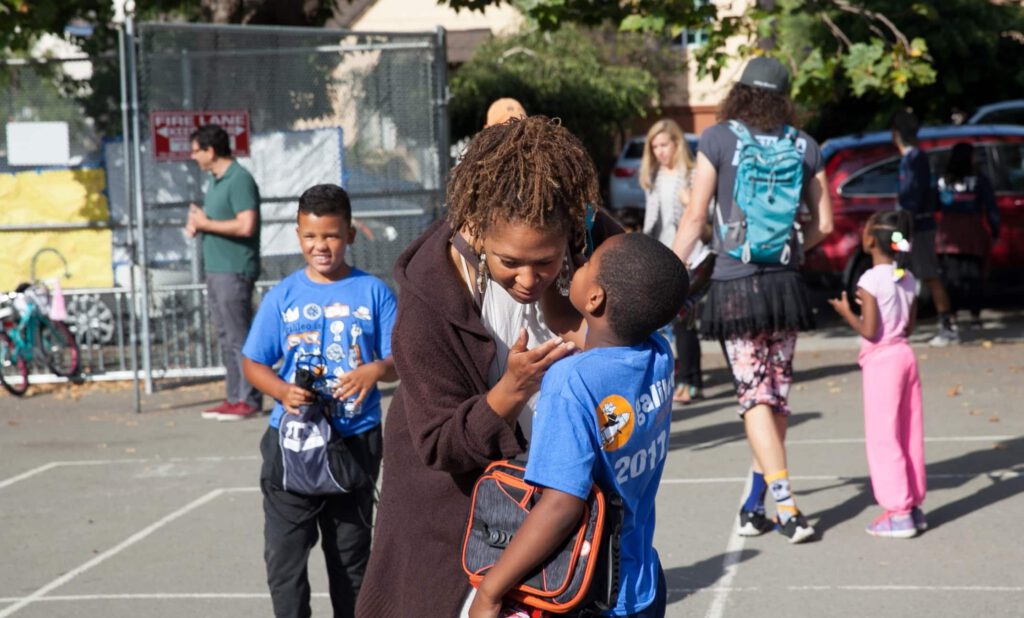
Try some of these things and your kids will learn both to value the role of reflection and be open to the information that flows from it. Happy innovating!
